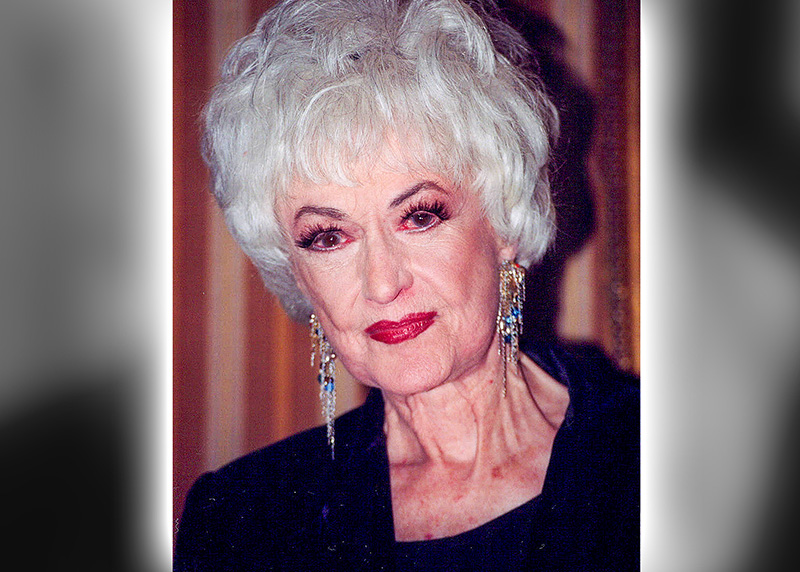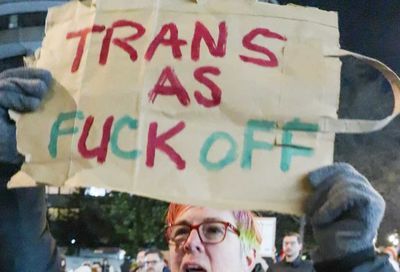Fairfax County School Board unanimously adopts updated policy ensuring transgender students’ rights
Meanwhile, other Virginia school boards find themselves mired in contentious public meetings and heated debates over similar policies.

On Thursday evening, the Fairfax County School Board unanimously adopted an updated Student Rights and Responsibilities document that, for the first time, enumerates essential rights and protections for transgender, gender-nonconforming, and nonbinary students, as guaranteed by both the district’s nondiscrimination policy and by state law.
The protections for trans students, as spelled out by the revised policy, are rooted in guarantees provided by Regulation 2603, a set of highly-detailed guidelines, adopted last year, which spell out the rights and protections that transgender and gender-expansive students in Fairfax County Public Schools are entitled to when it comes to a host of issues ranging from their use of preferred names and pronouns to updating school transcripts and records to accessing facilities that align with their gender identity.
The revised Student Rights and Responsibilities document adopted last evening outlines — as did the prior version — expectations for student behavior, how parents can exercise their rights, disciplinary procedures for violations of student codes of conduct, and the responsibilities of adults in creating a safe, equitable, and supportive school environment. But the newer enumerated protections for transgender students dispel a great deal of the ambiguity that existed after the school board voted to extend its nondiscrimination policy to include protections for gender identity in 2015.
At the time, opponents of updating the nondiscrimination policy worried about the scope of the rights and protections that would be granted to gender-expansive students. Fairfax County Public Schools staff prepared initial regulations in July 2016, but implementation was suspended while court fights over the right of trans students to access facilities consistent with their gender identity were pending in the courts.
Last month, the U.S. Supreme Court declined to hear an appeal of a federal appeals court decision finding that Gavin Grimm, a former high school student who is transgender, should have been allowed to access the boys’ restroom at Gloucester High School. As a result, transgender students throughout the 4th Circuit Court of Appeals — which has jurisdiction over Virginia — are entitled to gender-affirming facilities, thereby allowing Fairfax to move forward with implementation of its proposed policy.
The school board’s actions on Thursday build upon legislation approved by the Virginia General Assembly last year enabling school districts to create and adopt their own policies for dealing with transgender students, and bolstered by model policy published by the Virginia Department of Education intended to provide guidance to individual districts. School districts are expected to conform to that model policy — or go beyond it — by the start of the 2021-2022 school year.
Among the specific enumerated rights guaranteed by the document are the right to use facilities aligning with their gender identity, the right to be called by their preferred names and pronouns, the right to non-disclosure of their gender identity or sexual orientation, and the right to receive support that ensures equitable access to all school facilities and activities. They also have the right not to be intentionally outed or maliciously misgendered or “deadnamed” by peers and teachers alike.
See also: Stafford County School Board approves LGBTQ-inclusive nondiscrimination policy
The revised document was introduced by School Board Member Karl Frisch (Providence), the first openly gay school board member in the county, and seconded by Board Member Laura Jane Cohen (Springfield).
“In recent months, school board meetings in neighboring counties have descended into chaos as extremists attempt to deny these [gender-expansive and transgender] students their very existence, attack their humanity, and object to their right to thrive in public schools,” Frisch said in prepared remarks. “In years past, former members of this School Board have shared similar sentiments from this very dais. We still hear such comments during public participation from time to time.
“To the gender-expansive and transgender students and their families who have witnessed these attacks on their simple human dignity, I am sorry. You deserve much, much better,” Frisch added. “Tonight’s vote will not sweep away the pain and hurt you have experienced at the hands of careless peers or adults who should know better. But the changes we approve in this new Student Rights and Responsibilities document demonstrate our commitment to your success and safety in Fairfax County Public Schools. They are long overdue.”
Frisch’s comments refer to contentious school board meetings held throughout Virginia where concerned parents — egged on by conservative activist organizations — have expressed concerns about schools adopting politically correct or inclusive policies, especially as it relates to which facilities transgender students will be allowed to use. Many of those meetings’ public comment portions have been usurped by right-leaning activists railing against transgender rights.

In other instances, activists have screamed at school board members over allegations, lodged by national and local right-wing pundits, that educators are attempting to teach so-called “critical race theory,” or CRT, in class or adopt some of its concepts regarding racial equity in schools — even in rural school districts where there is little evidence of such a conspiracy. Those anti-CRT activists are then channeling that anger from conservative parents into other pet causes, such as seeking to bar transgender students from gender-affirming facilities or from participating in sports teams that do not align with their assigned sex at birth.
Meetings in neighboring Loudoun County, for example, have become particularly unruly, with parents and community members screaming at board members — whom they are already trying to oust through the recall process — threatening violence, and even leading to physical scuffles in the audience. At one recent meeting, the board was forced to cut off its public comment period, and security officers have been forced to remove rowdy audience members. The Loudoun County Sheriff’s Office charged one person with disorderly conduct and resisting arrest, and charged a second person for trespassing, reports WTOP.
The scenes, taking place at school board meetings throughout the commonwealth, are reminiscent of the angry demonstrations led by conservative parents and community members at Fairfax County School Board meetings in 2015 and 2016 after the district became one of the first in Virginia to adopt an LGBTQ-inclusive nondiscrimination policy.
Speakers at such meetings often employ three major arguments: 1) worries about bodily privacy that could occur if transgender students are allowed to use facilities matching their gender identity; 2) claims that trans-friendly policies violate their religious freedom because they conflict with their personal religious or moral beliefs surrounding sexuality and gender; and 3) claims that school boards have “rammed through” unpopular or controversial policies without sufficient public input.
According to the Loudoun Times-Mirror, following one of the contentious school board meetings, police in Leesburg, Virginia, recovered 35 flyers being distributed in a local neighborhood by a white supremacist group the Loyal White Knights, also known as the Ku Klux Klan, seeking to seize upon the discontent with the school board to push their own agenda.
Related: Four Northern Virginia school districts call on courts to support transgender students’ rights
Loudoun County Public Schools has also come under fire recently for suspending Tanner Cross, a physical education teacher who said he would refuse to abide by any pro-transgender policy adopted by the school board that would require teachers to use the preferred names and pronouns of trans and gender-nonconforming students. Cross has said his personal religious beliefs prevent him from calling a transgender child by their preferred name or pronouns that do not match their assigned sex at birth, and has claimed that many transgender people ultimately regret their decision to transition.
A Virginia judge ordered Loudoun County Public Schools to reinstate Cross, finding its decision to suspend him for speaking out against the policy was unconstitutional. The school system has since appealed the case to the Virginia Supreme Court.
The pattern seen in Loudoun County has been repeated over and over again throughout the commonwealth, as various school boards seek to comply with the 2020 law approved by the General Assembly empowering local school districts to adopt more comprehensive policies regarding the treatment of transgender students in schools.
School boards in Pittsylvania County, in southern Virginia, and Warren County, in the northwest portion of the state, have kowtowed to opponent of trans-inclusive policies and rejected proposed revisions, putting them at odds with state law. The Carroll County Board of Supervisors recently adopted a resolution calling on the Virginia General Assembly and State Department of Education to reverse course and repeal the model policy on transgender students, arguing that trans-inclusive policies violate the privacy rights of cisgender students.
In Augusta County, in the western portion of the state, Pulaski County, southwest of Blacksburg, and Gloucester County — the very county at the center of the Grimm lawsuit — officials have not yet taken action on proposed transgender policies. But parents and community members in the rural communities have expressed overwhelming opposition to the idea of guaranteeing access to gender-affirming facilities, meaning the school boards could reject pro-transgender policies when they are considered at their upcoming August meetings.
In rural Wythe County, the school board adopted a trans-inclusive nondiscrimination policy, although the county does not contain any specific policies enumerating what transgender students’ rights or protections are.
In the city of Portsmouth, the school board voted 5-1 last month to approve a policy nearly identical to Fairfax’s. In the Charlottesville suburbs, the Albemarle County School Board is poised to vote on a similar policy at its next meeting on Aug. 12.
Vee Lamneck, the executive director of Equality Virginia, the state’s largest LGBTQ organization, told Metro Weekly in an interview that the organization has been working on pushing policies to create safe, inclusive schools for the better part of the last decade, beginning with anti-bullying policies and then eventually moving on to nondiscrimination policies and more recently, to enumerated policies specifically spelling out LGBTQ protections, in an effort to make schools more welcoming.
If a school district refuses to pass a transgender-affirming policy, the 2020 law does not specify what the remedy for that refusal is, noted Lamneck.
“To my knowledge, the Virginia Department of Education isn’t necessarily tracking what every single school district is doing because of how decentralized our Department of Education is. And so, unfortunately, the weight of the implementation of this guidance really falls on the families of the transgender students and these local school districts. If a transgender student is not allowed to use their to use their their name or their pronouns, for example, it will fall on the shoulders of the students or their families to make sure that the policy is getting implemented accurately and appropriately,” they added.
But Lamneck also noted that, despite outcry from some school districts and conservative activists, the policies that school boards are considering are not new or revolutionary.
“I would say to that is that this guidance is not anything new, that many other states in this country have policies, similar policies in place that are well-established, well-researched and have been implemented appropriately, and that we are seeing not just transgender students, but their peers succeed and do well in school,” they said. “That’s what this guidance is all about: ensuring that all students have the ability to do well in school and graduate with their peers. It’s the responsibility of our great school districts here in Virginia to ensure that every child has that ability, and this guidance helps to support that.
“At the end of the day, the school districts have to be in compliance with state law and federal law. The recent guidance regarding Title IX, the recent decision by the Supreme Court not to hear the government Grimm case — time after time after time, we are seeing the the the the rights of transgender students being upheld across the country,” Lamneck added. “So we can and should expect to see transgender students being protected here in Virginia. What I tell parents and families and educators is that, at the end of the day, whether or not this officially gets adopted, it’s still state law and it is still required by the federal government.”
Lamneck also said that there are benefits that come from adopting inclusive policies.
“I like to remind folks that LGBTQ students and especially transgender students continue to face high rates of discrimination, bullying, violence in public schools,” they said. “And those young people are really suffering academically. So they’re not going to school. Their grades are falling behind. They’re not participating in extracurricular activities because the negative experiences they are having in schools. However, what we also know is that when supportive policies are in place, that these young people thrive. Their grades improve, their attendance improves, their wellness improves, and they become really productive, contributing members of their school environments.
“At the end of the day, isn’t that what we all want, for these schools to be places where young people can flourish and graduate and then go on to be productive members of their communities?” Lamneck concluded. “I want to see if Virginia ranked as one of the highest states in the country for public education. And this guidance helps to create a pathway to better outcomes for all students.”
See also:
China deletes LGBTQ accounts from social media in new crackdown
Wyoming biker bar sold T-shirts calling shooting gay people the “cure for AIDS”
New Jersey GOP governor hopeful Jack Ciattarelli rails against “teaching sodomy in sixth grade”
Support Metro Weekly’s Journalism
These are challenging times for news organizations. And yet it’s crucial we stay active and provide vital resources and information to both our local readers and the world. So won’t you please take a moment and consider supporting Metro Weekly with a membership? For as little as $5 a month, you can help ensure Metro Weekly magazine and MetroWeekly.com remain free, viable resources as we provide the best, most diverse, culturally-resonant LGBTQ coverage in both the D.C. region and around the world. Memberships come with exclusive perks and discounts, your own personal digital delivery of each week’s magazine (and an archive), access to our Member's Lounge when it launches this fall, and exclusive members-only items like Metro Weekly Membership Mugs and Tote Bags! Check out all our membership levels here and please join us today!























You must be logged in to post a comment.